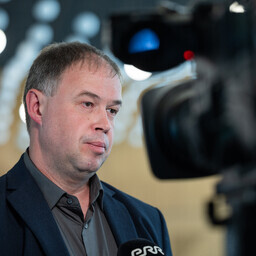PTA Director General Raimo Heinam says the ASF situation is still difficult. "The critical time is still ahead. Five farms are at high risk," he added. Currently, three farms are at risk because the latent period has ended in other farms.
ASF is still dangerous in the wild. Laboratory results show three to four positive results. "The background has not disappeared in the wild. All farms are at high risk," said Heinam.
The culling of pigs is halfway through. "We have the capacity to work for another 10-11 days," said the PTA Director General. If new outbreaks do not occur, culling will end around September 25-26.
Currently, the capacity of Vireen and Atria is used for processing pigs. Heinam said Vireen's capacity is high because the pigs are large and contain a lot of fat. In recent days, 90 to 100 tons of pigs have been sent to Vireen. Previously, it was thought this would take five-four weeks, but now it is estimated to take three-four weeks.
On Thursday, PTA representatives spoke with people living near the Metsküla burial site. They explained the current situation and the necessity of the burial site. The results of studies and water quality were also discussed.
In the Iru test, the pigs did not burn properly. Heinam said the result of the test conducted on Tuesday was negative, but the test was necessary. Enefit Green representative Siim Ots said the Iru waste incineration unit is designed to burn waste, not culled pigs.
The test used five pig carcasses that were not infected with ASF. Heinam said that in case of the spread of infection, burial is the only reasonable solution. However, there is no need to do so now.
Heinam said that if the situation does not worsen, there is no need to make a burial decision yet. At the same time, the Metsküla burial site is the best place if the situation worsens. The water risks in the area are very small, below 0.1%. Geology supports the use of the burial site.
Heinam emphasized that most European countries bury their pigs. Processing or burning is rare. Metsküla village elder Mehis Vinni said that locals understand the need for a burial site but would prefer it to be elsewhere.
Triin Kõrgmaa, Deputy Chancellor of Food Safety at the Ministry of Agriculture, said that reducing the wild boar population is essential to limit the spread of ASF. The government supports increasing the hunting of wild boar.
Three bids were received for the purchase of wild boar preserves. Approximately 5,000 wild boars will be purchased, making about 500,000 preserves. The total cost is 1.7 million euros. The state will offer free trichinosis testing for wild boars.

